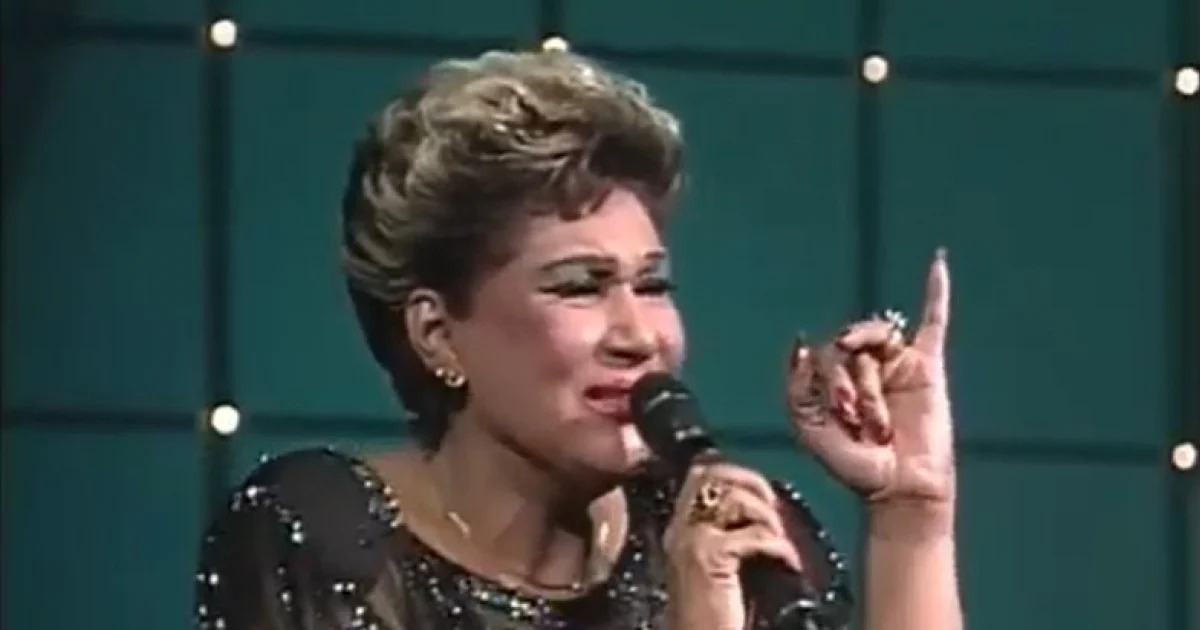The Cuban government will dedicate the upcoming Festival of Boleros to the esteemed singer Olga Guillot, who has been censored on the island for over six decades since she left permanently in 1961. Rodulfo Vaillant García, president of the UNEAC Provincial Committee in Santiago de Cuba, announced that the festival will pay tribute to Guillot for being born in that province and for being "a pride of that city."
Vaillant noted on Facebook that Guillot is one of the most popular singers Cuba has ever produced and that she was heard in many parts of the world. "In the 1950s, she was a leader among romantic singers in terms of Cuban public preference," he said, without mentioning the censorship she faced in her homeland.
Recognized worldwide as the Queen of Bolero, Olga Guillot was one of many artists who never aligned with communism and therefore had to go into exile early on. The regime never forgave her, and like her close friend Celia Cruz, her music and records were completely banned from the media.
Born on October 9, 1922, Guillot began her career very young in a duo and a quartet, but it soon became clear she had the qualities to be a soloist, making her debut in Havana in 1945 and achieving immediate success. After performing across stages in Cuba, the United States, Latin America, and several European countries, in early 1961, while headlining the show Serenata Mulata at the Hotel Capri's cabaret, she decided to leave for Venezuela with her daughter.
She vowed not to return to her beloved homeland until the Castros were out of power, and she passed away without fulfilling that dream in 2010 at Mount Sinai Hospital in Miami Beach due to a heart attack.
After going into exile, Guillot's career continued to be filled with triumphs. In 1963, the John F. Kennedy Arts Academy in Hollywood awarded her the Golden Palm as the Best Bolerista in Latin America. The following year, she held her first concert at Carnegie Hall in New York. She also performed at the Paramount Theatre on Broadway and the Olympia in Paris.
Her commitment to Cuban freedom led her to participate in numerous acts against the dictatorship. In 1994, she visited the U.S. naval base in Guantánamo, where she was honored by thousands of Cubans. "We will not rest until Cuba is free," she said then.
Upon her death, Cuban poet Sigfredo Ariel shared on the Cuban Art News portal what she once said on the radio when asked to express a single wish: "To have a cup of coffee with milk while watching a sunset on the Malecón."
FAQs About Olga Guillot and the Festival of Boleros
Here are some frequently asked questions about Olga Guillot and the Festival of Boleros that may provide additional insights into her legacy and the significance of this event.
Why was Olga Guillot censored in Cuba?
Olga Guillot was censored in Cuba because she never aligned with the communist regime and chose to go into exile. The government banned her music and completely erased her from the media.
What is Olga Guillot's significance in the world of Bolero music?
Olga Guillot is globally recognized as the Queen of Bolero. She achieved international acclaim for her romantic songs and was a leading figure among romantic singers in the 1950s.
What notable achievements did Olga Guillot have after going into exile?
After going into exile, Olga Guillot received numerous accolades, including the Golden Palm from the John F. Kennedy Arts Academy in Hollywood and performed at prestigious venues such as Carnegie Hall, the Paramount Theatre on Broadway, and the Olympia in Paris.
How did Olga Guillot contribute to the Cuban exile community?
Olga Guillot was an active participant in numerous acts against the Cuban dictatorship, including a significant visit to the U.S. naval base in Guantánamo in 1994, where she was honored by thousands of Cubans.
